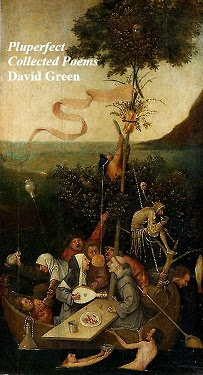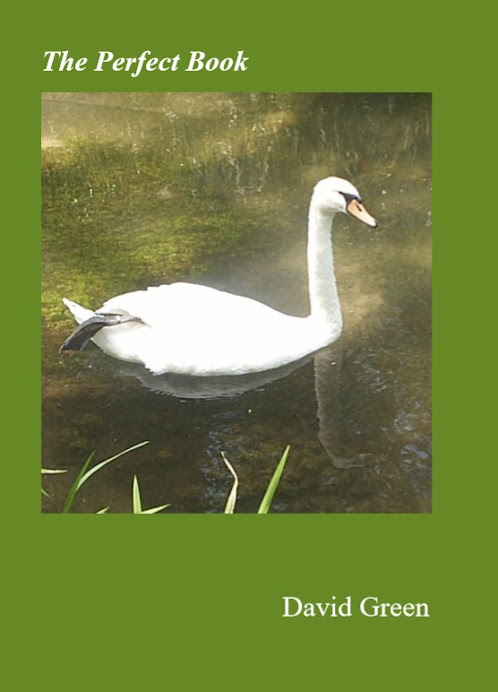I don't really have a favourite novelist. Maybe it's not necessary to have one. I get by okay without. Over the years here it's been said that Dubliners represents the finest prose fiction in the language and in spite of the recent discovery that The Dead is reckoned 'sentimental' in some high places, it remains so.
The short list of favourite novelists is long enough with George Eliot, Hardy, Julian Barnes, Camus, Murakami, Gide, Balzac, maybe Salinger and more taking up lots of shelf space but as well as the poems being nothing special, unless I've missed something, and Exiles being too heavy on ideas, I don't think I can claim as my favourite novelist anybody responsible for Finnegans Wake. I would feel as if I ought to have enjoyed it more without sherpa books to help me.
But there remains something compelling about Joyce that is unrivalled beyond Shakespeare. Finding that there is still more original Joyce than I knew about has been quite a happy accident. The Occasional, Critical and Political Writing (Oxford) has gathered momentum from the precocious undergraduate essay given the title Subjugation through his devotional tribute to Ibsen, some book reviews and aesthetics before I arrived this morning at Ireland: Island of Saints and Sages which is brilliant.
Of 288 pages of text, from 216 onwards are in Italian, from which others have been translated, so it's a smaller book than it looks if one is not a fluent reader of Italian but the footnotes are often of great value.
Ibsen's New Drama shows Joyce so enthralled of his first big literary love that much of it sets out When We Dead Awaken, heavily laden with quotes, for our benefit as if he can't help himself in his enthusiasm. Published in the Fortnightly Review, in 1900 when Joyce was 18, I shared some of his admiration at that age and it must have been far more exciting for him when it was so new.
It is also thrilling to find parallels with one's heroes and their preoccupations such as the extracts on aesthetics taken from Joyce's notebooks. Anybody who spends such a proportion of their time thinking about literature, poetry, art and all such undertakings must wonder what it is all about.
I think some terms have shifted in nuance in the last 120 years. Joyce writes that,
Art is the human disposition of sensible or intelligible matter for an aesthetic end.
That seems circular to me because I take Aesthetics to mean 'the philosophy of art' whereas for Joyce it is, as the first definition I find on the internet says, a set of principles concerned with the nature and appreciation of beauty. I would contend that not all art is beautiful. Satisfying, yes, if it's any good but we are not all Keats or Botticelli.
Similarly, Joyce's distinction between poetry and literature accords poetry a rarer status than it might have by now. It is a great shame that Joyce and anybody else could only read what had been written up to their time. In Crow, for example, Ted Hughes set out to write something less beautiful.
I'm not completely sold on 'realism', either, because art isn't 'real'. It is at best selective and only represents those 'real' things it selects to serve its purposes. Ibsen, George Moore and Turgenev came before Joyce and told it a bit more like it was but Harold Pinter, Alan Sillitoe and various episodes of Play for Today came after. I'm not sure that any attempt at showing life as it is lived by some are ever quite the point. I did once but I don't now.
But as a critic, Joyce is not easily impressed and gladly, not afraid to say so. He is not impressed by Shakespeare Studied in Eight Plays by Hon A.S. Canning which was clearly not only as vacuous as Prof. Sir Stanley Wells can be nowadays at his most pompous but,
even the pages are wrongly numbered.
The literary life is full of petty rivalries and even vendettas and Joyce is keen to dismiss Borlase and Son by T. Baron Russell, ending with,
the binding of the book is as ugly as one could reasonably expect
but the footnote is invaluable here, explaining that,
This comment appears to be a jibe at Longworth, the editor of the 'Daily Express'...At any rate it was to be Joyce's last book review and the story goes that Longworth threatened to kick Joyce downstairs if he ever came to the newspaper's offices again.
But Ireland: Island of Saints and Sages is the most complete item yet, a concise survey of the cultural history of his homeland, its receptiveness to religion, how it suffered from English and Scandinavian insurgence but provided talent to the rest of Europe. He might not these days have escaped censure for his narrow view of 'Nipponese dwarfs' but, having been drenched in Catholicism throughout his upbringing, he considers a future in which Ireland may or may not be able to throw off its backwardness and,
proclaim aloud the end of the coherent absurdity that is Catholicism, and the beginning of the incoherent absurdity that is Protestantism.
This, from a set of three lectures given in 1907 in Trieste, comes during the writing of Dubliners which was first submitted in 1905 but not published in its fuller form until 1916. I'm sure there's plenty more to come before the arrival of Stephen Hero but already here and looking sumptuous is Lucia Joyce, To Dance in the Wake by Carol Loeb Shloss.
One could feel uneasy about the biography of someone who spent her last 30 years in a mental health institution and it might well be flippant to ask what else one could expect of the daughter of the author, and muse behind, the Wake. We are intrusive, and prurient, but perhaps sometimes those that live on the outskirts of sanity or beyond them bring back things from such places that our more ordinary lives don't allow us to appreciate.


















